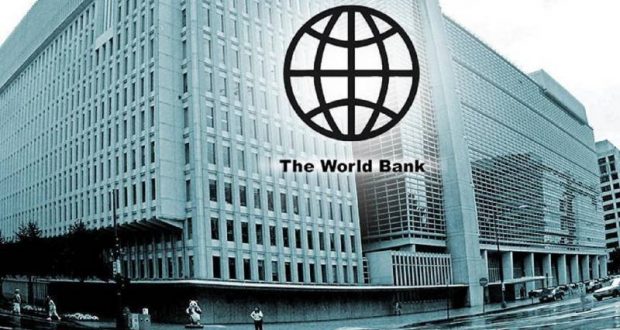Nigeria’s debt servicing to world Bank and China hit $1.79 billion in five years on servicing the debts owed to World Bank and the Exim Bank of China, according to an analysis of data on actual external debt service payments from the Debt Management Office.
The country paid the World Bank a total of $1.19bn, which included $854.48m to the International Development Association and $341.57m to the International Bank for Reconstruction and Development.
A total of $591.11m was paid to the Exim Bank of China, for nine projects for which loans were taken.
The projects included Nigeria Communication Satellite Project, Nigeria National Public Security Communication System Project, Nigeria Railway Modernisation Project (Idu-Kaduna Section), Nigeria Railway Modernisation Project (Lagos-Ibadan Section), Nigeria Abuja Light Rail Project, Nigeria ICT Infrastructure Backbone Project, Nigeria Four Airport Terminals Expansion Project, Nigerian Zungeru Hydroelectric Project, Nigerian Rehabilitation, and the upgrading of Abuja-Keffi-Makurdi Road Project.
Most of the loans from the World Bank were also tied to a programme or an infrastructure project.
On December 14, 2020, for instance, the World Bank approved a $1.5bn loan for Nigeria, earmarked for two projects, namely Nigeria COVID-19Action Recovery and Economic Stimulus Programme and the State Fiscal Transparency, Accountability, and Sustainability Programme.
The bank had on June 27, 2018, approved a loan of $775m for the Fiscal Governance and Institutions Project, Nigeria Erosion and Watershed Management Project (additional financing), Nigeria Polio Eradication Support Project (additional financing), Nigeria Electrification Project and the State Fiscal Transparency, Accountability and Sustainability scheme.
On March 23, 2017, the bank approved a $200m credit for the implementation of the Agro-Processing, Agricultural Productivity Enhancement and Livelihood Improvement Support Project, while $150m credit was offered for Mineral Sector Supportfor Economic Diversification Project on April 14 the same year.
On June 7, 2016, the bank approved a $1.1bn credit as additional finance to fund the State Education Programme Investment Project, Community and Social Development Project, Nigeria Youth Employment and Social Support Project, State Health Investment Project, Third National Fadama Development Project, NG-Polio Eradication Support Project and the National Social Safety Nets Project.
The country paid $302.17m to World Bank and $58.79m to the Exim Bank of China in 2016, while $151.91m was paid to World Bank and $65.01m to the Exim Bank of China in 2017.
It paid $183.44m to World Bank and $133.05m to the Exim Bank of China in 2018, while $238.73m was paid to World Bank and $138.77m to the Exim Bank of China in 2019.
In 2020, Nigeria paid $319.80m to World Bank and a $195.49m to the Exim Bank of China.
In the 2021 financial statement of the IDA, it was stated that Nigeria was the fifth top IDA borrower with $11.7bn debt stock.
According to a World Bank brief on ‘COVID-19: Debt service suspension initiative’, Nigeria is not a beneficiary of the bank’s debt service suspension initiative established by G20 countries, despite its increasing debt and the potential of saving the country $432.6m in 20 months, from May 2020 to December 2021.
As of March 31, 2021, Nigeria owed the World Bank a total of $11.51bn and the Exim Bank of China, $3.402bn.
 Financial Energy Review
Financial Energy Review





